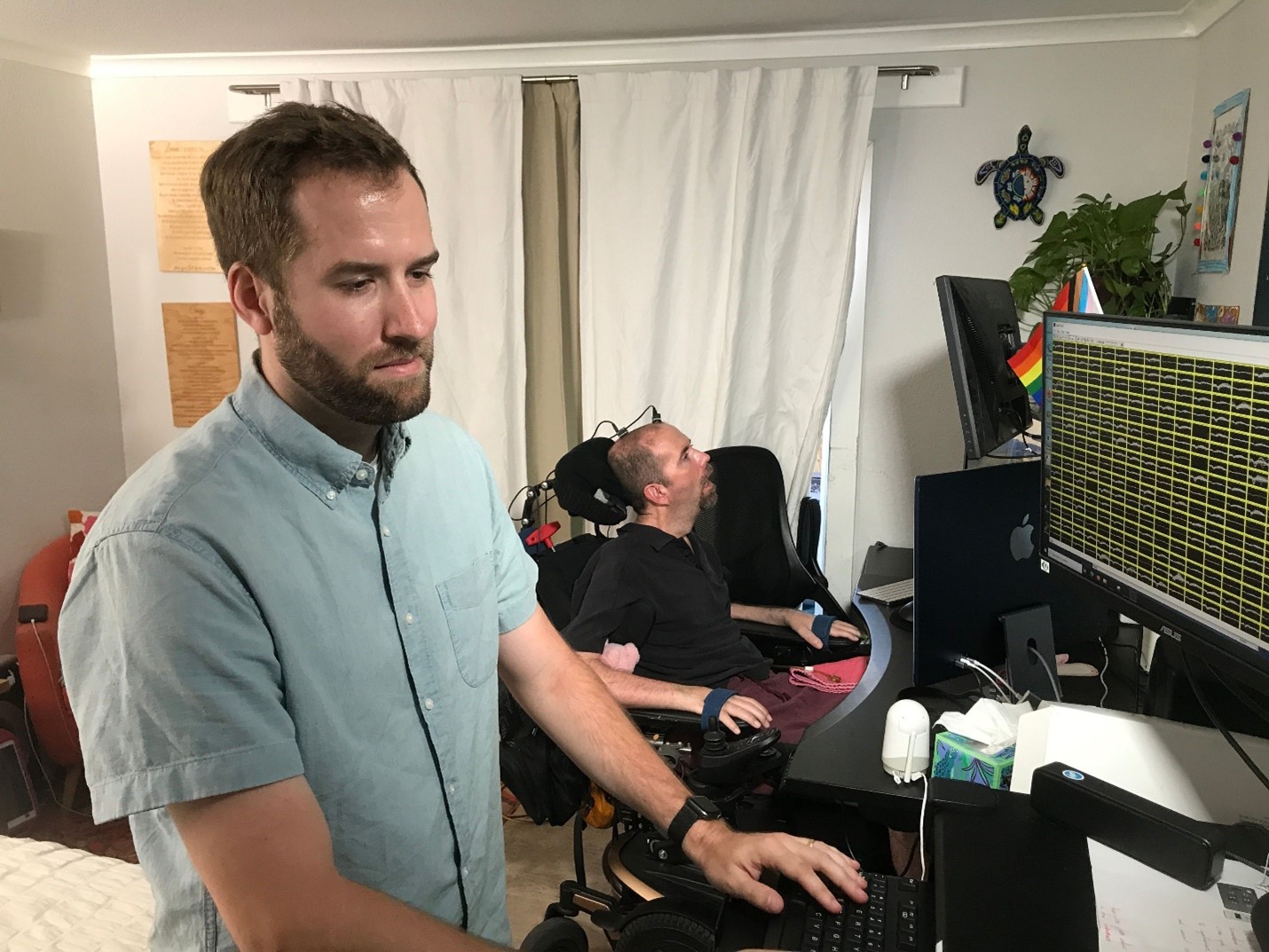A patient with ALS has been given his voice back thanks to a revolutionary brain-computer interface (BCI) that can decode his intended speech with about 97 percent accuracy – and with its inbuilt AI technology, it reads that speech aloud in his actual voice.
Casey Harrell, a 45-year-old man with ALS (amyotrophic lateral sclerosis, or Lou Gehrig’s disease) had been struggling with verbal communication after the muscle weakness caused by the progressive condition had left him with dysarthria. For patients like Harrell, BCIs offer the life-changing prospect of restoring their ability to interact with other people through speech.
“Not being able to communicate is so frustrating and demoralizing. It is like you are trapped,” Harrell said in a statement.
Harrell is one of a number of patients participating in the BrainGate clinical trial, testing cutting-edge BCIs that promise to restore their voices. In Harrell’s case, not only is his device achieving unprecedented accuracy, but with integrated AI it’s able to closely replicate his voice from the past.
The BrainGate consortium’s device uses four microelectrode arrays implanted into the left precentral gyrus, a region of the brain that plays an important role in speech coordination. The arrays record brain activity detected by a total of 256 cortical electrodes.
“We’re really detecting their attempt to move their muscles and talk,” explained co-principal investigator Dr Sergey Stavisky in another statement. The brain signals directed towards the muscles of the head and neck are translated into sound units called phonemes, which are then combined into the words the person is trying to say.
Lead study author Dr Nicholas Card readies the BCI system for Harrell.
Image credit: UC Regents
As you might imagine, this process is highly complex, and previous BCI systems have been slow and error-prone. Researchers have worked to improve speeds and accuracy, and BCIs that can operate in two languages or in people who can no longer even attempt verbal speech have shown the impressive capabilities of these kinds of systems. But Harrell’s has achieved a level of accuracy that has never been seen before.
Twenty-five days after the device was implanted, Harrell began the first of 84 data collection sessions over 32 weeks, a total of 248 hours of verbal communication. In that very first session, after just 30 minutes, the system was reaching 99.6 percent accuracy within a 50-word vocabulary. Later, that vocabulary was expanded to 125,000 words with an accuracy of 90.2 percent. After continual training, the BCI has maintained an accuracy of 97.5 percent, the best ever reported for a device like this.
“At this point, we can decode what Casey is trying to say correctly about 97 percent of the time, which is better than many commercially available smartphone applications that try to interpret a person’s voice,” said co-principal investigator Dr David Brandman. “This technology is transformative because it provides hope for people who want to speak but can’t.”
Maybe even more incredible is the fact that Harrell’s BCI is able to reproduce – as closely as possible – his very own voice.
Speech BCIs are often associated with tinny, robotic voices – perhaps most famously because of the device used by the late Professor Stephen Hawking, who also had ALS. For Harrell, a sophisticated AI model was trained on audio samples of his voice before he became ill, so that the output sounds just like he did then.
In a world where so much of human life is documented on video, we might hope that such a thing will become even easier for future patients.
Harrell’s experience, and the potential implications of BCI technology, might best be summed up by reflecting on his reaction when the device was switched on. “The first time we tried the system, he cried with joy as the words he was trying to say correctly appeared on-screen,” Stavisky recalls.
“We all did.”
The study is published in The New England Journal of Medicine.
Source Link: Cutting-Edge Brain Implant Gives Patient With ALS His Real Voice Back – With A Little Help From AI
